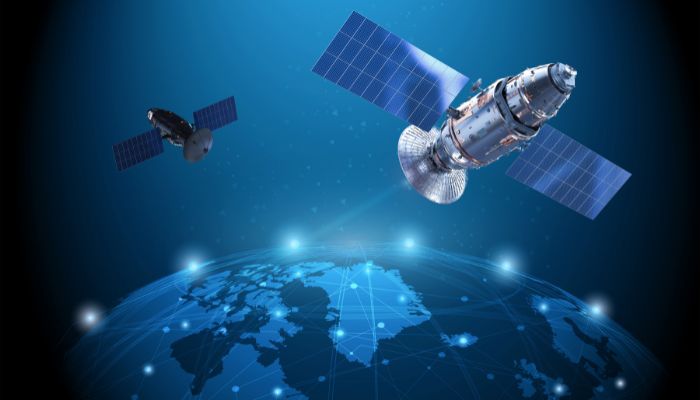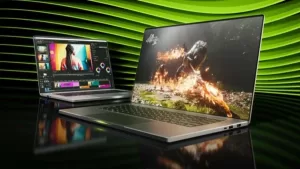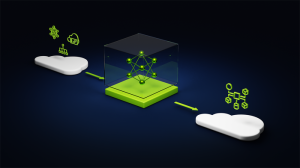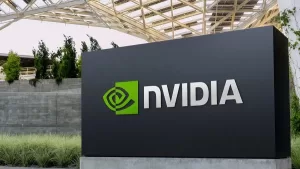Revolutionizing Connectivity: Nvidia’s AI Satellites to Expand Internet Access

- Planet Labs and Nvidia are partnering to enhance satellite data processing using Nvidia’s Jetson Edge AI, aiming to provide faster, more precise data to businesses and government sectors.
- AI-powered satellites are expected to revolutionize industries by improving high-speed internet access in remote areas and offering real-time data analysis for sectors like agriculture, insurance, and real estate.
Planet Labs PBC and Nvidia have joined forces to improve the power of satellites, with the aim to enhance the way businesses get and make use of data in order to gain faster better, more precise analysis.
They will cooperate to boost the capability of processing on Planet’s Pelican-2 high-resolution satellite that is scheduled to launch in the coming months. The goal of the partnership is to use the Nvidia Jetson Edge AI system in order to provide data faster to Planet’s clients in the commercial and government sectors.
Researchers believe that satellites with AI enhancements could revolutionize companies operating in remote regions which will allow them to gain access international markets and work with global partners.
“Imagine a small business in a remote village suddenly having access to high-speed internet,” John Conafay, co-founder and chief operating officer at Integrate Space, told. “They can now tap into global markets, collaborate with partners around the world, and grow their business in ways that were previously unimaginable.”
Bringing High-Speed Internet to Remote Areas
Planet is hoping to improve bandwidth consumption and bring high-speed internet access to previously inaccessible regions using AI to process the data that is onboard the satellite.
“This collaboration is about getting answers from orbit to our customers in near real-time,” Kiruthika Devaraj, vice director of avionics and spacecraft for Planet In an announcement. “The suite of solutions that Planet can generate for our customers with our high-resolution optical sensor on Pelican is enhanced by NVIDIA Jetson and real-time connectivity.”
Beyond the expansion of internet access AI-powered satellites can alter the way that industries are run, including insurance, agriculture and real property. With their precise, instantaneous information and analysis they could aid farmers increase their crop yields and insurers speed up processing claims and real estate companies take better investment decisions.
“AI is a huge game changer,” Mislav Tolusic Co-Managing Partner and chief information officer at Marlinspike which is an investment firm focused on AI and aerospace industry and aerospace, said. “Now we can specifically direct satellites to only send data that we need.” For farmers, this might be a way to get precise information regarding crop health as well as the weather pattern, and insurers can use AI to track natural disasters and spot fraud in claims.”
Fueling the Growth of IoT and the Space Economy
The use of AI technology into satellites will also increase the development in the Internet of Things (IoT) as well as the economy of space and create new business models as well as opportunities for growth and innovation.
“AI is very complimentary to the Internet of Things because it allows us to quickly run analytics on large amounts of data and discover new trends and insights,” Tolusic stated.
Experts believe that improved connectivity to satellites could result in an increase in the accessibility of information, with more business owners and entrepreneurs having access to pre-made AI models as well as satellite-based capabilities upon the spot.
“This satellite-as-a-service model is a game-changer for startups and small businesses,” Conafay said. “It lowers the barrier to entry and allows for incredible innovation across industries.”
The potential advantages of AI-powered satellites are huge however, there are obstacles to be overcome like the expense of satellite technology that could hinder its use in certain areas.
However, the experts are optimistic regarding the potential of AI-powered satellites.
“Running compute on-orbit allows us to design new pipelines that can understand the data as it is being collected, without waiting for data download and delivery,” added Deepak Vasisht as associate professor of the University of Illinois Urbana-Champaign, in the announcement. “Such on-orbit compute will enable many new (and important) capabilities, such as real-time tracking of events like forest fires, disasters and other events of interest.”
In the midst of preparations, as Planet will soon be one of the first businesses to successfully space-qualify and take flight Nvidia Jetson to an earth surveillance satellite, the foundation is set to usher in a future of connectivity across the globe and technological innovation in the commercial sector. It’s not a matter of how, but if these AI-powered satellites will be commonplace, revolutionizing businesses and opening up new opportunities around the world.















